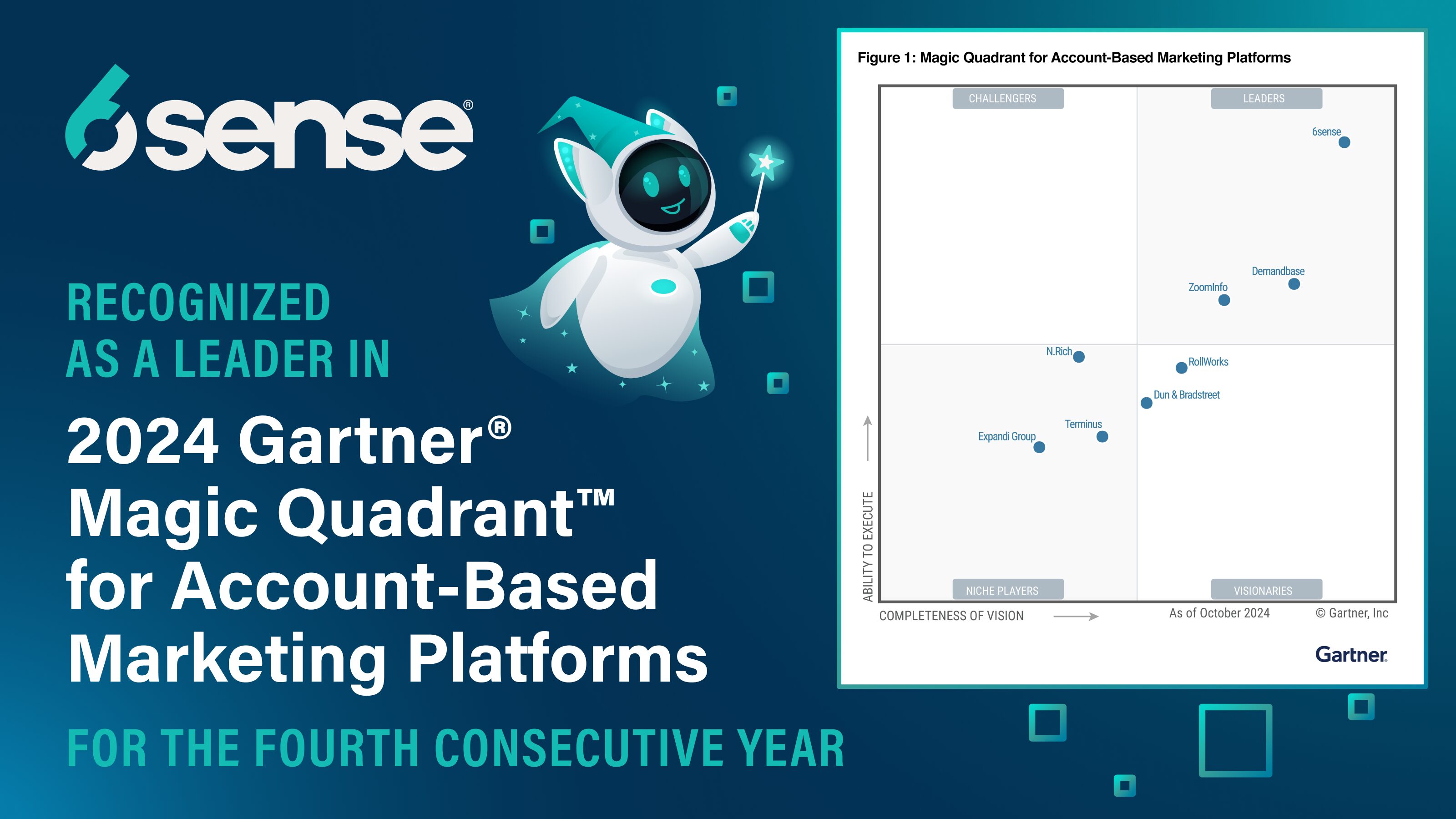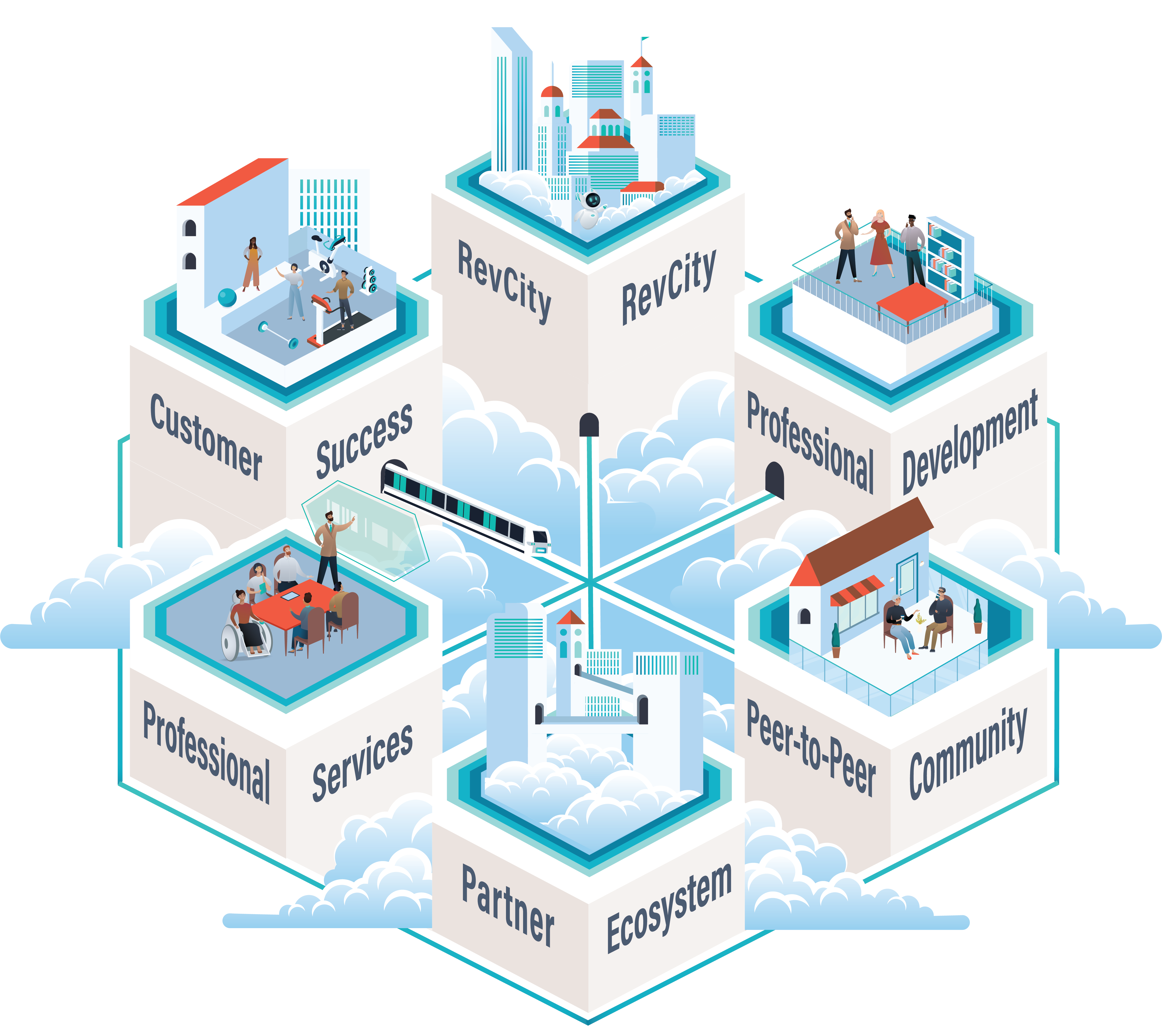Marketing has never lacked buzzwords, so you’re not alone if you’ve wondered, What is growth marketing? New trends don’t always last, so it can be difficult to figure out what’s important. But we think this one is worth exploring.
With a focus on revenue, data, testing, and the entire buyer journey, growth marketing is not a fly-by-night trend. Instead, it impacts B2B marketing from the top of the funnel to the bottom line. In fact, a forthcoming 6sense report reveals that top marketers are 28% more likely to list revenue as their main KPI.
Read on to learn what “growth marketing” is, how it differs from other approaches, why you should consider trying it, and how you can begin to integrate its principles.
What Is Growth Marketing?
Growth marketing combines direct marketing tactics with a complete understanding of the funnel to drive cost-effective performance at scale. By leaning into data and experimentation, growth marketers put revenue in focus — a real shift from traditional marketing, which focused primarily on top-of-funnel activities.
According to Lola.com CEO Mike Volpe, “Growth marketing is removing the boundaries of marketing to enable every aspect of the customer experience to focus on attracting more engaged customers.”
It also re-envisions the role of a marketing department within a business. Instead of focusing on generating leads, growth marketers make qualified pipeline and revenue attainment their goals. This philosophy better aligns the marketing team with sales.
This revenue-centric approach also unleashes the marketer’s toolkit across the entire buyer’s journey. Instead of a singular focus on lead generation, the marketing department also views acquisition, retention, upselling, and more within its scope. The aim is to help generate ROI at every stage.
Here’s how growth marketing stands out from other marketing strategies:
Growth Marketing vs. Digital Marketing
Digital marketers use tactics such as social media and SEO to attract new customers. They’re primarily concerned with top- and mid-funnel, metrics and only use online strategies to create returns.
In contrast, growth marketers can use any marketing channel to connect with their customers and focus on improving their impact on the business’s bottom line, regardless of customer stage.
Growth Marketing vs. Performance Marketing
Performance marketers use advertising to rapidly generate ROI. The performance marketer’s toolkit is composed of paid marketing tactics, such as paid search and display.
Growth marketing, in contrast, can use a number of different methods, including unpaid channels, to produce results. Growth marketers are also more focused on creating a long-term impact on revenue.
Growth Marketing vs. Product Marketing
Product marketers are responsible for the messaging and positioning of a product, as well as bringing it to market. The role of product marketing begins and ends with the product.
Growth marketing, on the other hand, isn’t limited in its focus. Growth marketers are responsible for helping increase the revenue of the entire business by improving returns across the full customer lifecycle.
Growth Marketing vs. Growth Hacking
Growth hackers specialize in building rapid growth, often within startups and early-stage companies. Because they can use any number of strategies and tactics to create that growth, growth hackers are primarily problem solvers brought in to do anything and everything to accelerate a business’s momentum, especially with minimal resources.
Growth marketers, however, specialize in building sustainable, long-term revenue growth – and use marketing tools and techniques to create those results.
Why Should You Consider Growth Marketing?
First, consider this: Growth marketing might not be the right fit for your company.
Top-of-funnel marketing may work well for your business, and your marketing and sales departments might work well together. But if you’re finding that your KPIs aren’t translating to sales — or the department’s reputation within the business needs work — then it may be a good time to start experimenting.
Growth marketing is gaining wider adoption, especially in the tech sector. Many B2B businesses are finding it necessary to move away from traditional marketing KPIs to a more holistic approach that ties assessment to the bottom line.
In fact, recent research in our upcoming report found that the best B2B marketers are:
- 28% more likely to list revenue as their top KPI than their peers
- 17% more likely to take responsibility for upselling
- 21% more likely to take responsibility for customer retention
With the shortest average stay of anyone in the C-suite, CMOs are under more pressure than ever before to prove value. Increasing adoption of growth marketing principles can help reverse that trend.
How Can You Start Integrating Its Principles?
Adopting a growth marketing approach often requires:
A Shift in Priorities and Scope of Responsibility
Marketing will be measured against its ability to increase revenue across the entire customer lifecycle. This orientation is captured by the acronym AAARRR: Awareness, Acquisition, Activation, Revenue, Retention, and Referral.
A Data-Driven Mentality
Growth marketers are adept at using modern tracking and analytics to report on the effectiveness of a campaign on the bottom line. This is another trend being seen across B2B marketing, as top-performing marketers are substantially more likely to use a customer data platform, attribution tools and web analytics than their peers.
A Data-Driven Approach Complemented by A/B & Multivariate Testing
Growth marketers embrace these testing models, and use experimentation and iteration to continuously improve the effectiveness of emails, social posts, websites, etc.
Connecting With Customers Across a Full Spectrum of Marketing Channels
This includes everything from in-app messaging to direct mail, and every relevant channel for deepening your relationship with your audience.
Growth Marketing Could Be Here to Stay
Marketing has always been a fast-paced profession, but recently developed technologies can put the pedal to the metal. The internet opened the floodgates for customer engagement, and the ensuing innovation created many marketing subdisciplines.
Few will stand the test of time, but growth marketing has a good shot. Are you looking for a partner in growth marketing? 6sense’s account engagement platform with AI-based Pipeline Intelligence can help. Reach out to learn more.



